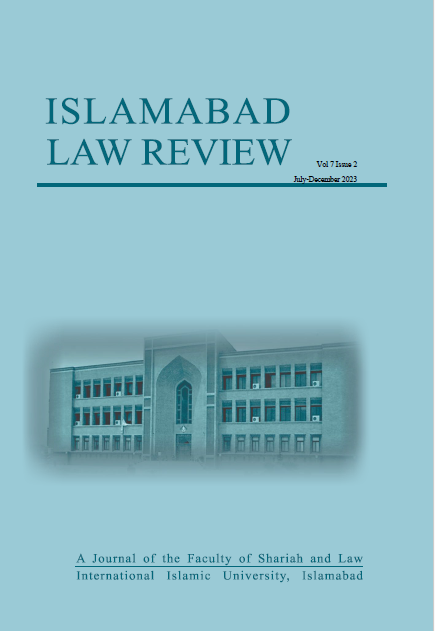Analysis of Anti-Sexual Harassment Legislation in Pakistan Under International Human Rights Law Obligations
الملخص
This article delves into the evolution of anti-sexual harassment legislation in Pakistan by its international human rights law commitments. Recognizing sexual harassment as a pervasive issue in our society, particularly within the workplace, the study elucidates its role in fostering a hostile environment while simultaneously violating fundamental human rights and perpetuating gender discrimination. Applying a human rights-based perspective, the analysis situates sexual harassment within the broader context of victims' economic and social rights and underscores its interconnectedness with global imperatives such as international harmony, defense, and economic development. The primary objective is to comprehensively examine the trajectory of anti-sexual harassment legislation in Pakistan. It critically evaluates the legislation's effectiveness in addressing the multifaceted challenges posed by sexual harassment and its impact on the victims' rights, economic well-being, and social standing. Employing a qualitative methodology, the research draws on an extensive review of legislative texts, case law, and scholarly articles. The study concludes by affirming the necessity for Pakistan to uphold its international human rights law obligations in combating sexual harassment effectively. The findings of this research offer valuable insights for policymakers, legal practitioners, and advocacy groups committed to fostering a fair and just society.


